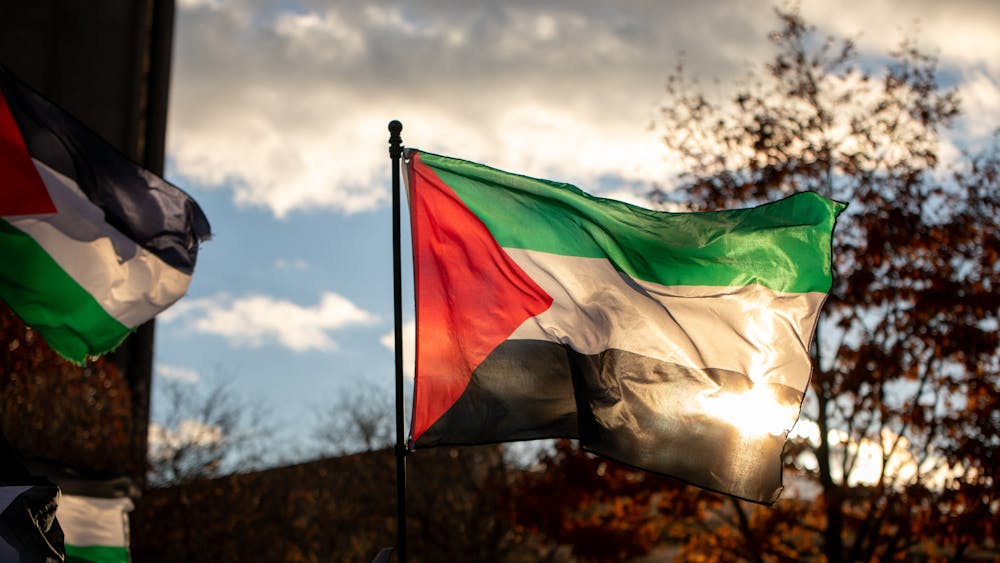Mosab Abu Toha spent the first 60 days of the ongoing conflict in Gaza. He was detained by the Israeli Defense Forces for three days. Most of his family is still in the north, while two of his siblings are in the south, in Rafah.
“People in the north are being starved by Israel. People in the south are being attacked by Israel. No matter where you are, you are in danger,” Abu Toha said.
Abu Toha is a Palestinian poet who spoke at SUNY BDS’s (Boycott Divestment and Sanctions) first state-wide launch event last week. UB’s chapter of SUNY BDS hosted a screening of the event in Crosby Hall.
Abu Toha completed his master’s at Syracuse University and has appeared on CNN and written for The New Yorker. His book, “Things You May Find Hidden Behind My Ear: Poems from Gaza,” won the Palestinian Book Award and an American Book Award.
Abu Toha’s son has an American passport, and the rest of his family, his wife and two other children, have Palestinian passports. His son’s American citizenship allowed them to be on a list of individuals who could flee to the south. The people on this list must be approved by Israel, Egypt and the United States. Abu Toha heard of a family, like his own, which had a child with an American passport, and they were killed by the Israeli military as they attempted to flee the south.
The Red Cross in Gaza was not able to provide Abu Toha’s family with protection. Abu Toha’s family home was bombed by the Israeli army, and the Israeli army fired smoke canisters into a school that Abu and his family were staying in. This was their push to leave.
“Many children were about to suffocate,” he said.
Abu Toha and his wife decided to flee to the south. He and his family escaped via donkey cart to the Rafah border crossing. His family was dropped off at a place referred to as “The Tank.”
“This was the first time in my life I saw an Israeli tank and soldiers with my own eyes. Before, Israel was killing us, bombing our houses and killing everything we love, without us ever seeing them. Just imagine someone taking everything from you, and you never see their faces. But they could see us, they could see our gardens,” Abu Toha explained.
Abu Toha was holding his 3-year-old son in one hand, and his family passports in the other. Abu Toha was detained by the Israeli army who knew him by name. When he was released three days later, after significant push back from the literary world, they claimed to not know who he was and apologized for the ‘mistake.’
“I was stripped naked in front of three soldiers. Everything I had with me was taken, including my children’s winter clothes. I spent 10 days in a school with no medicine, no blankets and no clothes for my children.”
Abu Toha, his wife and his children are now in Cairo, Egypt.
Abu Toha’s close friend Refaat Alareer, poet, writer and co-founder of We Are Not Numbers, was killed in Gaza. Alareer used the English language to educate his community and students.
“It’s the language we use to speak directly to the oppressor. Especially in the United States and Britain. It is the language of the Balfour Declaration that took away my land and made my grandfather a refugee,” Abu Toha said.
Abu Toha closed with a poetry reading and a final message: “Do not hide your anger, and don’t stop talking about Palestine. When Refaat died, he said if he must die, let it be a tale, let it bring hope. Don’t finish this tale till Palestine is free.”
Sarah Owusu is a news editor and can be reached at sarah.owusu@ubspectrum.com

Sarah Owusu is an assistant news editor at The Spectrum. In her free time she enjoys reading, baking, music and talking politics (yes, shockingly). She'll also be her own hairdresser when she needs a change.





